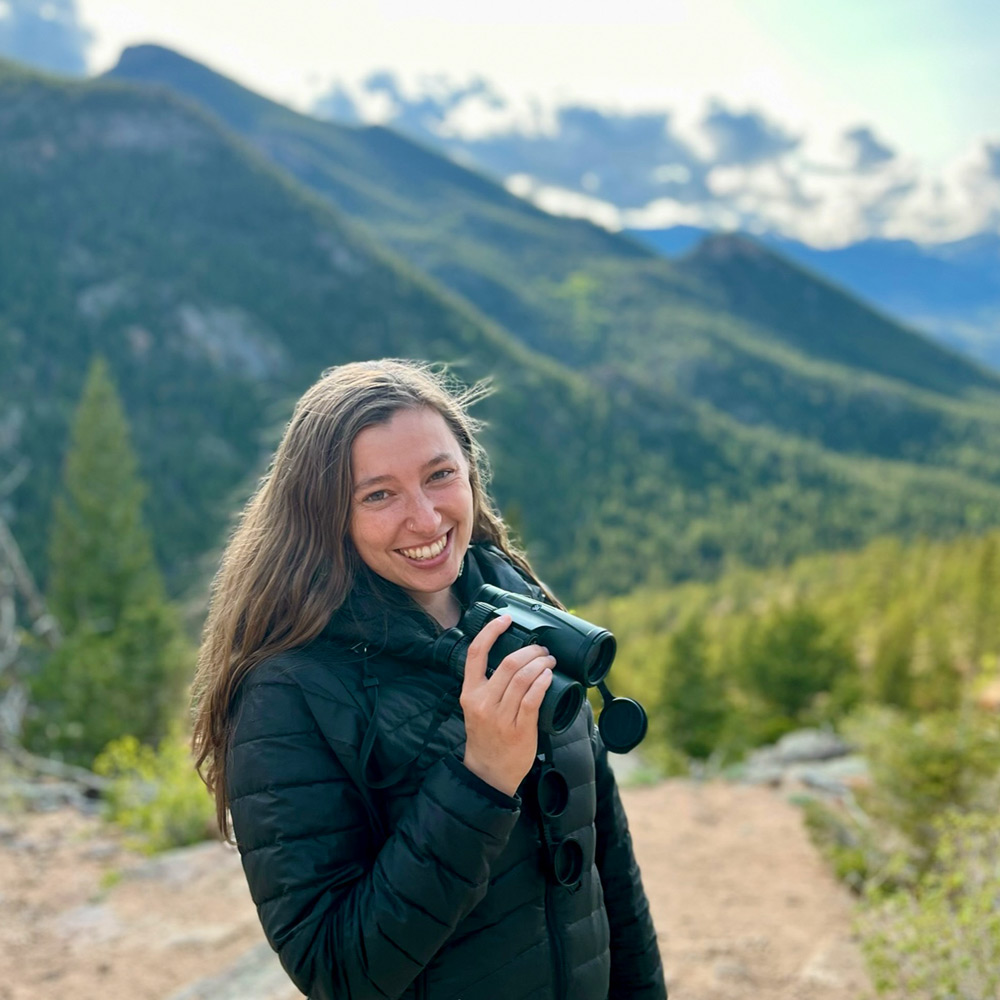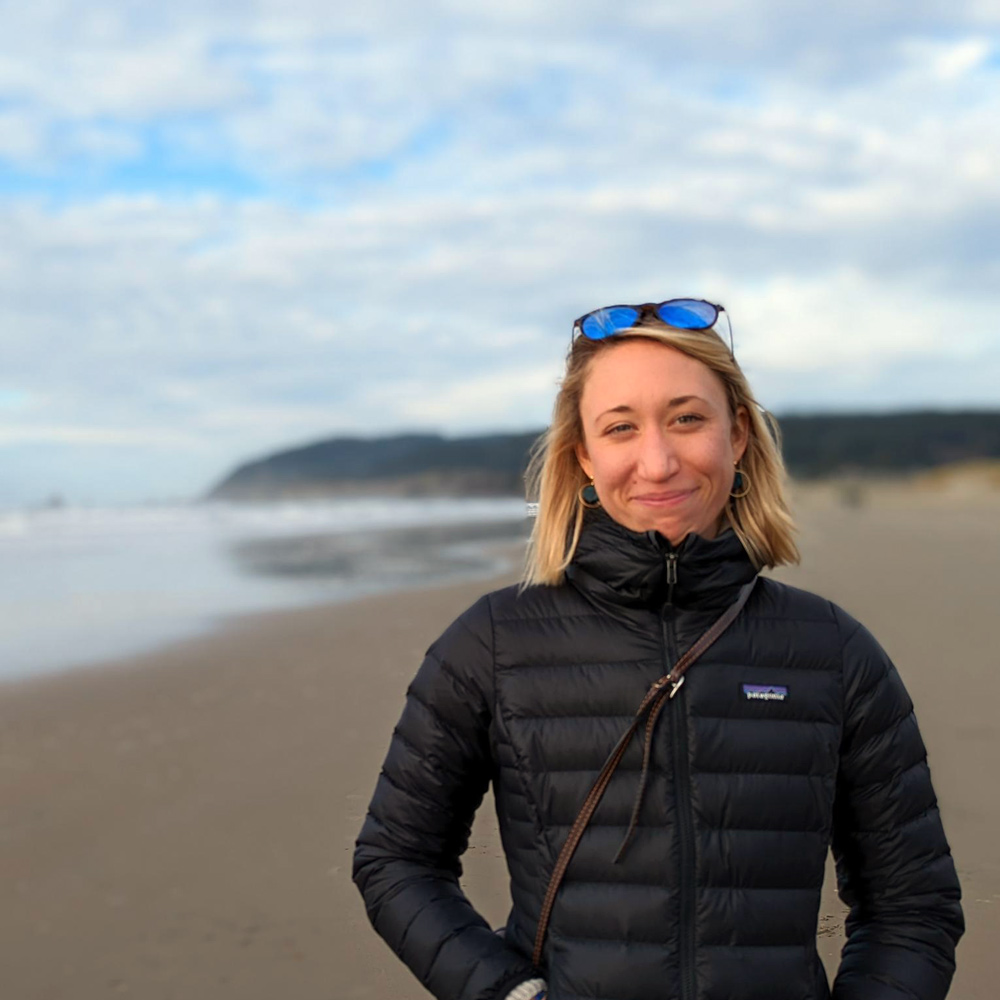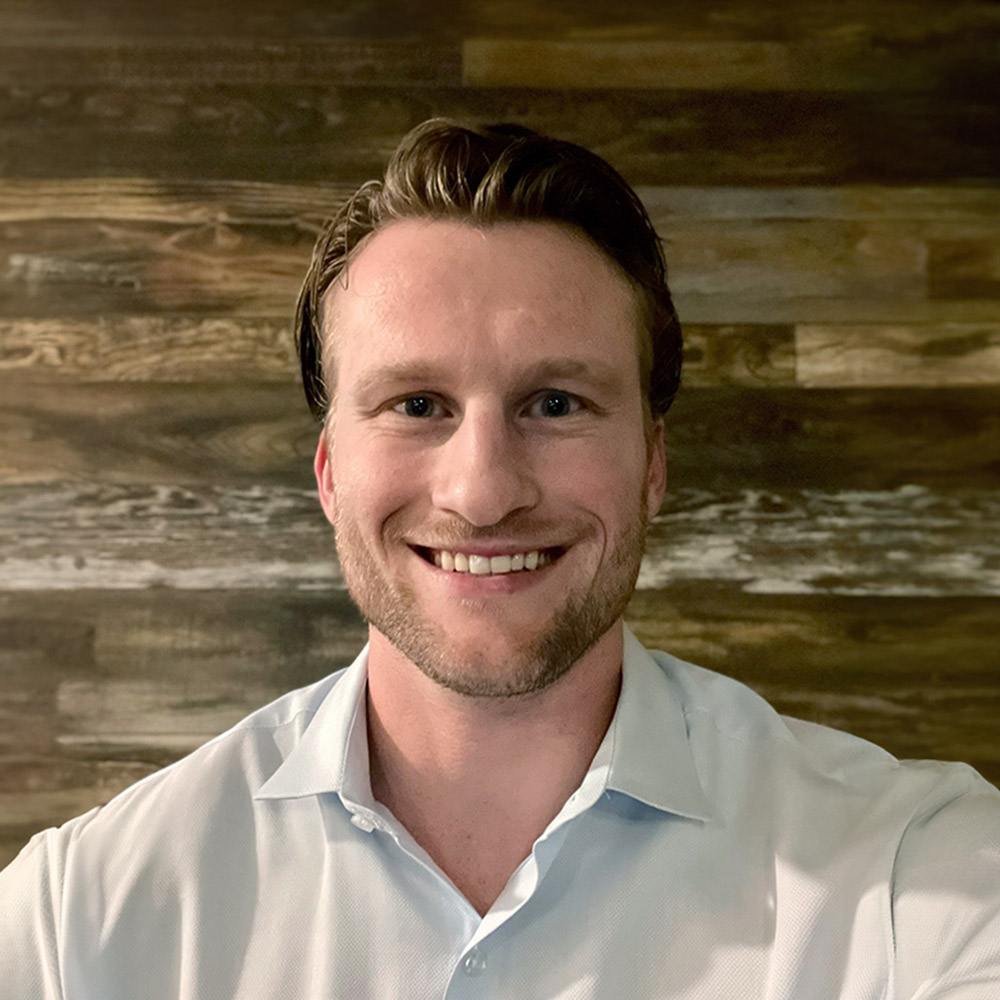 Green Mosaic of Opportunity
Green Mosaic of Opportunity
LUMNI are environmental and sustainability leaders on the local, state, and national levels in diverse positions and settings. All credit the University as their career springboard.

Kate Burgess ’17
National Caucus of Environmental Legislators (NCEL), Washington, DC

Read more
Thus began one of the greatest lessons I’ve learned to date. Plymouth State empowered me to choose how I wanted to learn, what classes made sense to me, and how I wanted to refer to my collective experience by literally naming my degree. I love when I’m asked what I majored in because it gives me the opportunity to tell them about PSU’s interdisciplinary studies program. While my class schedule looked unconventional, it gave me so much ownership over my education, and I can happily report that I am applying skills from nearly every class I took in some way in my current roles.
My job at NCEL didn’t exist before I started working there, and I wholeheartedly believe PSU gave me the tools and confidence to cold call the org, tell them my skills, and create a position from the ground up, just like I did with my degree.
Read more
PSU’s environmental science program is special because we had the White Mountains right in our backyard. We had field labs all seasons of the year and in a variety of ecosystems. We had access to areas like Hubbard Brook and Squam Lake to get hands-on experience with measuring snow depth to taking lake soil cores. A lot of environmental issues are multifaceted, and our professors really pushed us to look at issues from multiple perspectives. I think PSU’s Cluster Learning approach also exposed me to other disciplines where I could take what I learned back to my environmental classes and apply that new knowledge there. Plymouth State is really special to me; the campus is beautiful, I made great connections with friends and professors, and I was set up to pursue a career in my field, which I feel incredibly lucky to do. Pursuing higher education at Plymouth State is one of the best decisions I ever made and if I could do it again I would.

Kate Burgess ’17
National Caucus of Environmental Legislators (NCEL), Washington, DC
Read more
Thus began one of the greatest lessons I’ve learned to date. Plymouth State empowered me to choose how I wanted to learn, what classes made sense to me, and how I wanted to refer to my collective experience by literally naming my degree. I love when I’m asked what I majored in because it gives me the opportunity to tell them about PSU’s interdisciplinary studies program. While my class schedule looked unconventional, it gave me so much ownership over my education, and I can happily report that I am applying skills from nearly every class I took in some way in my current roles.
My job at NCEL didn’t exist before I started working there, and I wholeheartedly believe PSU gave me the tools and confidence to cold call the org, tell them my skills, and create a position from the ground up, just like I did with my degree.

Read more
PSU’s environmental science program is special because we had the White Mountains right in our backyard. We had field labs all seasons of the year and in a variety of ecosystems. We had access to areas like Hubbard Brook and Squam Lake to get hands-on experience with measuring snow depth to taking lake soil cores. A lot of environmental issues are multifaceted, and our professors really pushed us to look at issues from multiple perspectives. I think PSU’s Cluster Learning approach also exposed me to other disciplines where I could take what I learned back to my environmental classes and apply that new knowledge there. Plymouth State is really special to me; the campus is beautiful, I made great connections with friends and professors, and I was set up to pursue a career in my field, which I feel incredibly lucky to do. Pursuing higher education at Plymouth State is one of the best decisions I ever made and if I could do it again I would.


Read more
I am very grateful for my time at Plymouth State, and to have worked with such a forward-thinking community of students, researchers, and professors. In fact, what I believe distinguishes Plymouth State University from most schools is its sense of community. It is a community. Whether meeting up with a study group at the ‘HUB’, participating in the University’s annual Ski Day, or having coffee with your favorite professor at Café Monte Alto, PSU is special, and naturally cultivates community and connection. This not only made me a happier person but prepared me for a meaningful career in conservation.
Since graduating from Plymouth State in 2015, I went on to receive a “Green” MBA Certificate from Antioch University of New England, became a senior fellow of the Environmental and Leadership Program (ELP), served as a board member and volunteer for Plymouth Area Renewable Energy Initiative (PAREI), and started my career in nonprofit management and conservation fundraising in New Hampshire working for the Squam Lakes Association, and now, at The Nature Conservancy in New Hampshire.
Read more
Exceptionally talented and passionate professors in the Environmental and Sustainability departments, including Professors Doner, Villamagna, and Eisenhauer, prepared me for success in our field, and to be a consummate professional. They helped me build a sturdy and diverse knowledge base from which I could launch my career and build out my expertise. With a curriculum that winds through the laboratory, classroom, and forest, I was able to get a complete liberal arts education and found great value in working collaboratively with my peers. Today, I am doing emissions accounting, environmental compliance, and energy management because of the quality of the education I received at PSU, and the love the faculty have for the subject and our planet.

Read more
I am very grateful for my time at Plymouth State, and to have worked with such a forward-thinking community of students, researchers, and professors. In fact, what I believe distinguishes Plymouth State University from most schools is its sense of community. It is a community. Whether meeting up with a study group at the ‘HUB’, participating in the University’s annual Ski Day, or having coffee with your favorite professor at Café Monte Alto, PSU is special, and naturally cultivates community and connection. This not only made me a happier person but prepared me for a meaningful career in conservation.
Since graduating from Plymouth State in 2015, I went on to receive a “Green” MBA Certificate from Antioch University of New England, became a senior fellow of the Environmental and Leadership Program (ELP), served as a board member and volunteer for Plymouth Area Renewable Energy Initiative (PAREI), and started my career in nonprofit management and conservation fundraising in New Hampshire working for the Squam Lakes Association, and now, at The Nature Conservancy in New Hampshire.

Read more
Exceptionally talented and passionate professors in the Environmental and Sustainability departments, including Professors Doner, Villamagna, and Eisenhauer, prepared me for success in our field, and to be a consummate professional. They helped me build a sturdy and diverse knowledge base from which I could launch my career and build out my expertise. With a curriculum that winds through the laboratory, classroom, and forest, I was able to get a complete liberal arts education and found great value in working collaboratively with my peers. Today, I am doing emissions accounting, environmental compliance, and energy management because of the quality of the education I received at PSU, and the love the faculty have for the subject and our planet.


Read more
In the highly competitive world of craft beers, Common Roots wins praise from Beer Advocate, the New York Times, and Thrillist, but the firm’s bottom line involves more than recognition and financial progress. “It’s just as important to us to be a community-focused business, and we’re extremely cognizant of the amount of resources that we use,” says Christian Weber. The firm is located on the Hudson River and supports its protection. It also prioritizes sourcing supplies locally as much as possible, partners with area colleges to offer brewing certificates, and conducts an annual fundraiser for a local high school.
“Professor Brian Eisenhauer saw potential in me and definitely challenged me with my master’s research and working on community projects,” says Weber, who served as executive director of the Lake Placid Land Conservancy before launching Common Roots. “My background in the environmental program definitely translates to what we do in our business.”
Weber praises PSU’s Cluster Learning emphasis on interdisciplinary collaborations. “At Common Roots, everyone has experience that lends to the greater purpose. You need those social skills to work with others.”
In recognition of the mentors at PSU that inspire, guide, and shape the lives of so many students, the Christian ’09, ’13G and Melanie Weber Sustainability Scholarship provides deserving PSU undergraduates with opportunities to heighten their understanding of environmental science, sustainability, or human dimensions of natural resource management.
Read more
The hands-on courses and attentive faculty at Plymouth State help students, like me, prepare for “real world” critical thinking that’s required after college. The experiences and professional connections I made during my time at PSU have proven to be invaluable. Without the care and guidance of my advisors and professors, I would not be where I am today. I continue to be a guest speaker in many ESP courses to talk about my work, the importance of networking, and how attending Plymouth State has contributed to the success of my career thus far.

Read more
In the highly competitive world of craft beers, Common Roots wins praise from Beer Advocate, the New York Times, and Thrillist, but the firm’s bottom line involves more than recognition and financial progress. “It’s just as important to us to be a community-focused business, and we’re extremely cognizant of the amount of resources that we use,” says Christian Weber. The firm is located on the Hudson River and supports its protection. It also prioritizes sourcing supplies locally as much as possible, partners with area colleges to offer brewing certificates, and conducts an annual fundraiser for a local high school.
“Professor Brian Eisenhauer saw potential in me and definitely challenged me with my master’s research and working on community projects,” says Weber, who served as executive director of the Lake Placid Land Conservancy before launching Common Roots. “My background in the environmental program definitely translates to what we do in our business.”
Weber praises PSU’s Cluster Learning emphasis on interdisciplinary collaborations. “At Common Roots, everyone has experience that lends to the greater purpose. You need those social skills to work with others.”
In recognition of the mentors at PSU that inspire, guide, and shape the lives of so many students, the Christian ’09, ’13G and Melanie Weber Sustainability Scholarship provides deserving PSU undergraduates with opportunities to heighten their understanding of environmental science, sustainability, or human dimensions of natural resource management.

Read more
The hands-on courses and attentive faculty at Plymouth State help students, like me, prepare for “real world” critical thinking that’s required after college. The experiences and professional connections I made during my time at PSU have proven to be invaluable. Without the care and guidance of my advisors and professors, I would not be where I am today. I continue to be a guest speaker in many ESP courses to talk about my work, the importance of networking, and how attending Plymouth State has contributed to the success of my career thus far.